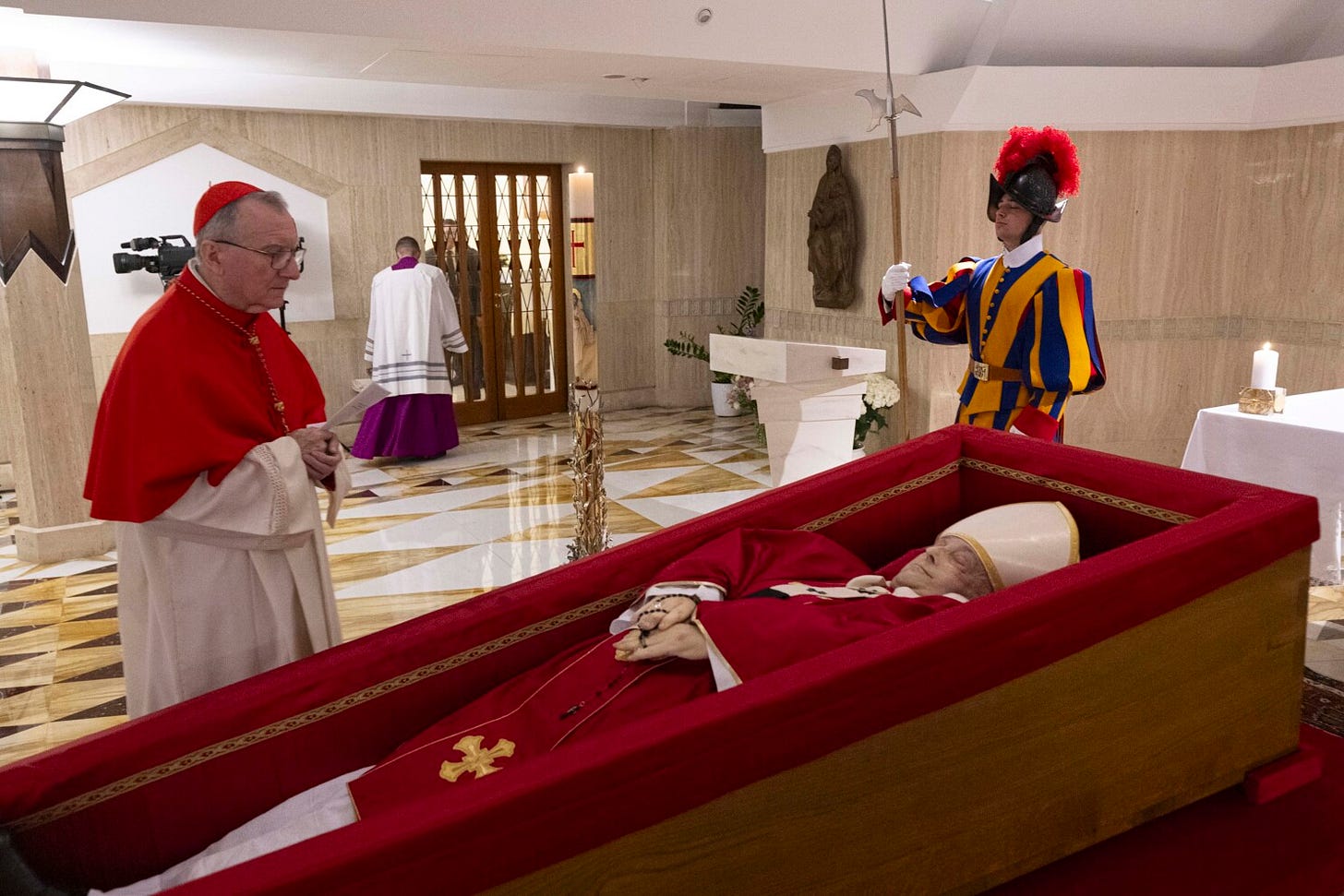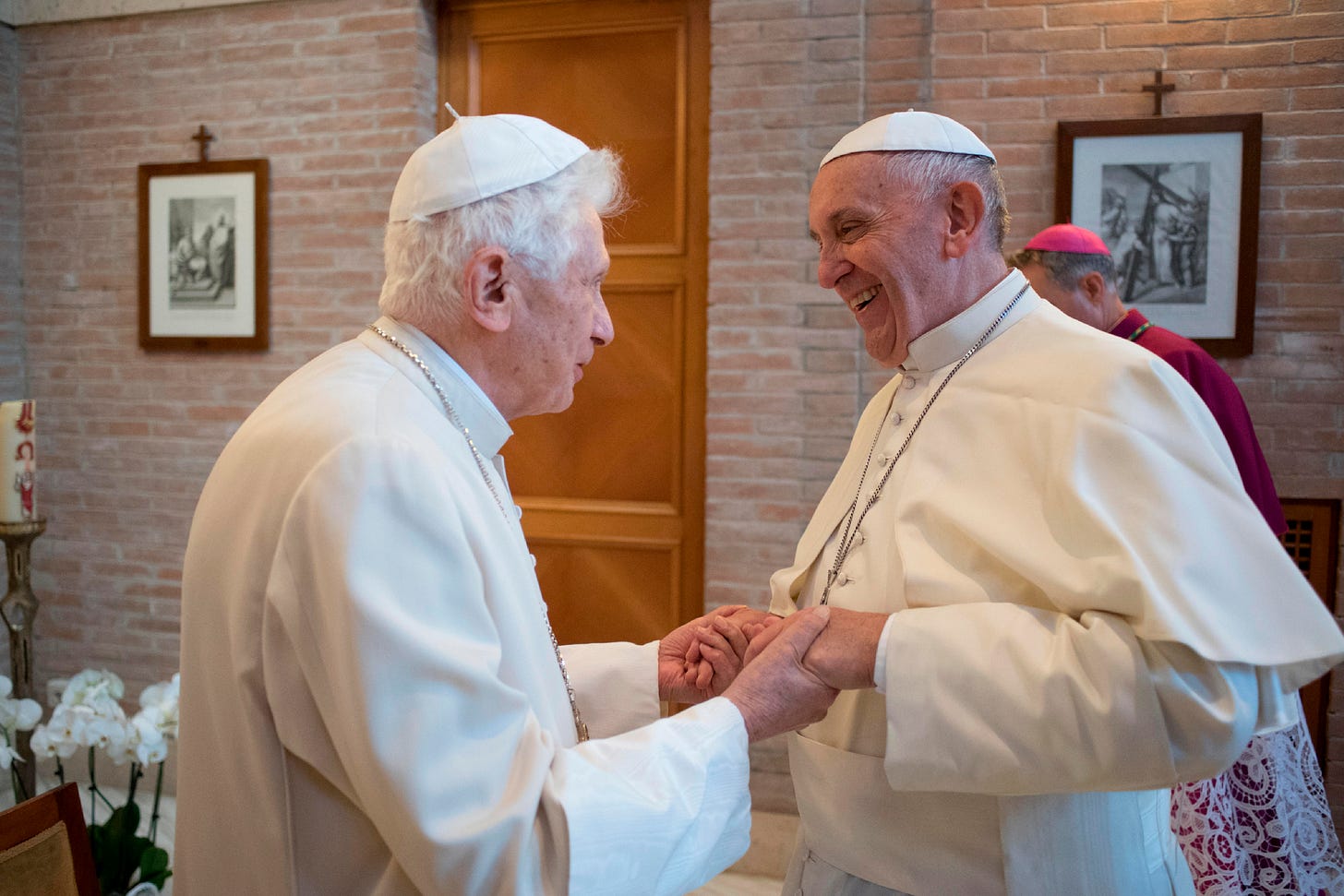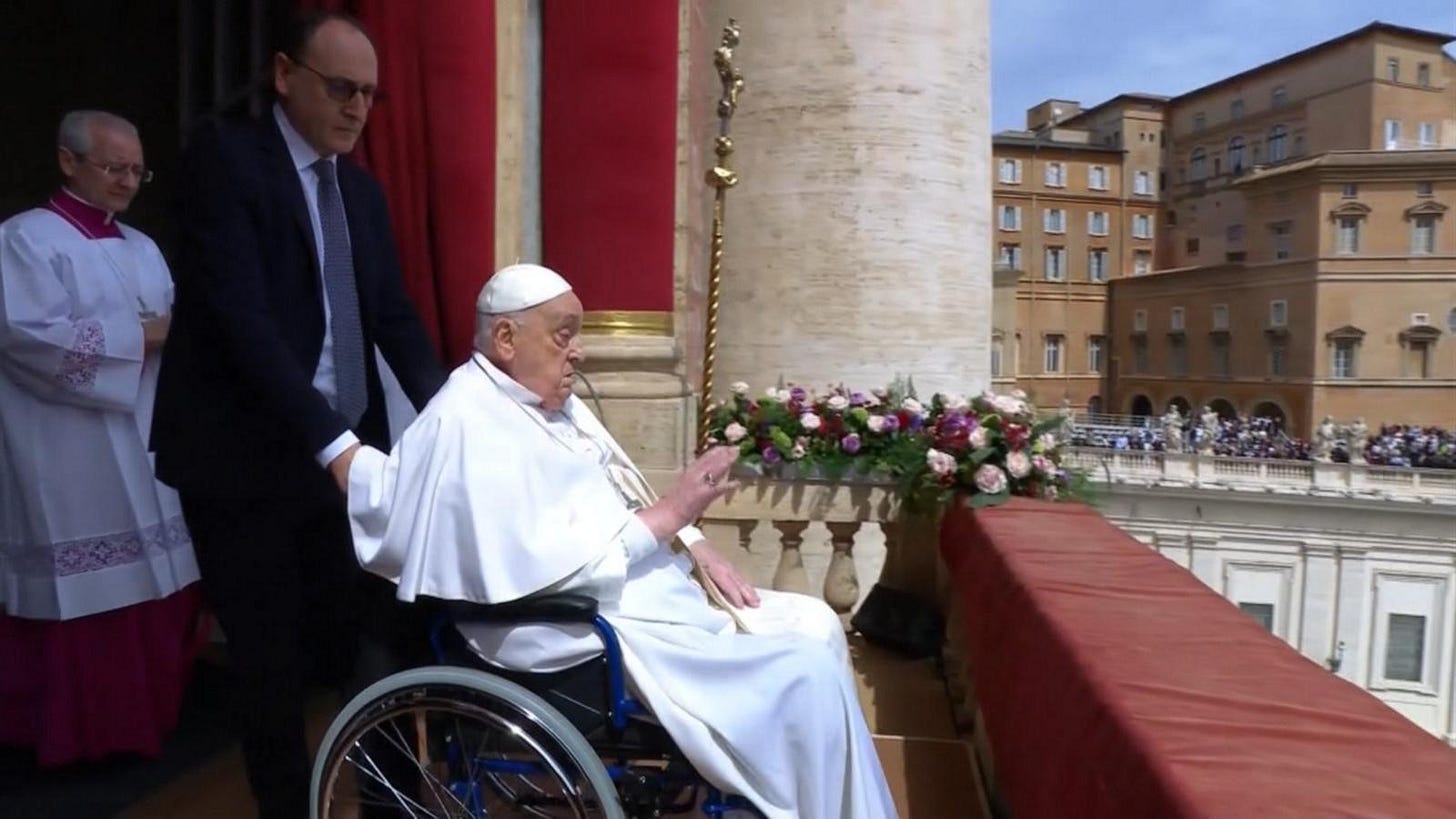What Comes Next
A Brief Reflection on Mourning
When I woke up about 6:30 am Monday morning, I saw in my email that Pope Francis had died. I first thought it might be a hoax, but then confirmed it and had a brief moment of sadness
Then I texted the communications office at my university. When Francis went into hospital a couple months back, they had asked me to be ready for media inquiries should the pope die. Little more than an hour after my text, I was live on the local news talking about Francis’ legacy.
In fact I spent a lot of yesterday talking to reporters for local TV and radio. The main questions I got, with some variations, were (1) what is the legacy of Pope Francis, (2) what is the process look like now that he’s gone, and (3) what’s next for the church overall. A few journalists tried to elicit predictions about who will be the next Pope (I don’t know and I won’t answer), and one of those asked whether it might be an American (no).

One question that nobody from the media asked me was “how are you doing?”
It’s a question they might ask in “man on the street” interviews, but I’m there to be an academic expert on the Catholic Church, not a grieving Catholic. The journalist in my last interview, setting up question #2 about process, asked “what is happening right now?” My answer was “mourning.” What’s happening right now is mourning. I know many folks who are in mourning. I’m in mourning. On social media, I see all sorts of posts of people sharing their stories about Pope Francis, the effect he had on them, or even the encounters they had with him. It’s just like what people do at funerals. We celebrate, we share, we mourn.
Already much of the public discussion is about the conclave, the papabili, what comes next for the church. But I’ve found it helpful, in talking with journalists and with my students, to emphasize that the first period after the death of the pope is mourning. Let us take our time, our nine days (or longer), to grieve.
Even though the journalists didn’t ask me how I’m doing, it is something I’ve been reflecting on today. Honestly, part of my mourning process is writing, which is why you’re being subjected to this post.
Sometimes in talking with students I refer often to a distinction between being a “Catholic professional” and a “professional Catholic” (I think I stole this from the podcast Jesuitical, but can’t remember which episode). I think it can be a helpful rule of thumb for thinking about one’s work or the kinds of careers one wants to pursue. It’s been helpful for me, at least.
In my younger days, working as an actuarial analyst in Chicago, I was a Catholic professional. The work I did had nothing to do with the Church or its mission. I sought to be a good Catholic of course, and thus be a good and honest employee and colleague. One night at a theology on tap event at St. Clement’s, we were asked to discuss in small groups whether we saw our jobs as “ministries.” I, quite adamantly, did not see mine that way. I assessed the risk of natural disasters on insurance portfolios. Looking back, I still don’t see that job as a ministry, even as I can see ways that my way of living (but not my job) could have been its own small evangelization.
Now I’m a theologian, and sometimes I get asked to talk about big Catholic events to the media. I’m a professional Catholic. I make my living off the Church as a guide for understanding Catholic-y things. My job, and maybe also my ministry, is to answer questions and to help people think intelligently about the Church.
There’s a challenge for me, then, in moments like this where I should take some time to step back from the professional Catholic role and just be, you know, a Catholic.1 I was asked a lot “what will be Pope Francis’ legacy,” but I also need to answer for myself “what does Pope Francis mean to me?”

The day Pope Benedict XVI announced he was resigning - the first pope to resign in centuries - I was in Florida for my campus interview at Saint Leo. Amid the nerves of trying to impress a potential employer, there were questions about the significance of this resignation, what it would mean for his legacy, and what would come next for the church. The same day my future colleagues were interviewing me, they were being interviewed by the media; back then they were answering the same questions about Benedict that I answered yesterday about Francis.
A few weeks later, a day or so after I signed my contract to come to Saint Leo, Francis was elected Pope. I was finishing up my PhD program at Boston College and teaching a course for BC’s core, “Exploring Catholicism.” All of a sudden that spring semester we had live events illuminating our class discussions. Students who had been going through the motions became interested in new ways. We were in the middle of class when the white smoke came out, and it was a student who alerted me to it. We wrapped not long after and I came back to the department, which was full of students and faculty watching the TV to see who was elected.
I mention all this because, apart from the real and good questions about his legacy, his impact on the Church, his pastoral priorities, etc., Pope Francis has been the Pope for the whole of my professional Catholic life. The transition to his papacy coincided with my transition from student to professor. He has been, in a real way, a companion and conversation partner for me as I have grown into a reasonably competent, perhaps C-list, theologian.
I think I’m not just mourning the death of the leader of my church. I’m also mourning a season of my life that is perhaps coming to an end. My professional Catholic life continues, and continues its dialogue with Pope Francis, but the “early career” phase is over. Onward, mid-career. Memento mori.

There are of course many insights I have taken from him as well. I am more attuned to the ways I contribute to the “throwaway culture” he critiqued in Laudato Si’. The indictment in that term, fundamentally the same one identified by John Paul II in the “culture of death,” was the more mundane of the two, but it also more effectively pricked my conscience because its quotidian character.
I hope I am a better listener and dialogue partner, spurred in part by his emphases over the course of the recent synods and his open engagement with people from all over. This emphasis on listening is by no means new, but instead evokes the prologue of the Rule of St. Benedict, which opens with “Listen carefully, my son, to the master’s instructions, and attend to them with the ear of your heart.” I am educated daily about how valuable listening to another and giving them due attention is, with my students, my colleagues, and most especially my children.
Last of all, I take from Francis a continued focus on encounter with Christ, an encounter mediated through sacraments and the Church but also through the other, wherever one might find them. A central part of my own Catholicism has always been that I’m a convert, and that my conversion was, for lack of a better word, disruptive in my life. I think for a time the event of my conversion distracted me from the ongoing process of conversion that I was, and am, called to for the rest of this life. Francis’ open recognition of his own sinfulness, of his ongoing conversion to being a better shepherd, helped me to see this question more fully in my own life. I’m still working on it, but isn’t that kind of the point?
So what happens now? We mourn. I mourn the end of a period of my life, a period shaped profoundly by this papacy, but I mourn also the death of that good man.
And even as I do so, I expect I’ll be fielding more media inquiries.
In light of this insight, I’m very much looking forward to Colleen Dulle’s forthcoming book Struck Down, Not Destroyed: Keeping the Faith as a Vatican Reporter, which should be out in August 2025.

